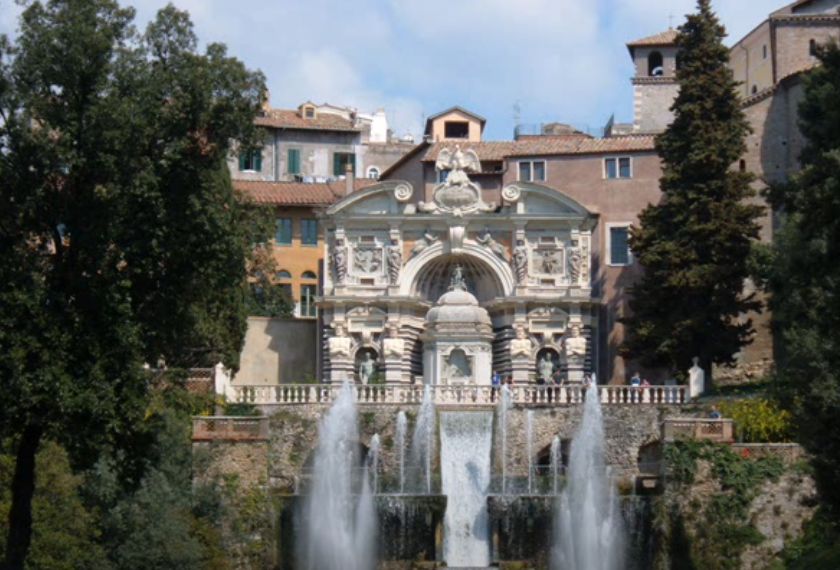April 18, 2021
Presented in virtual recital by Spivey Hall via Our Concerts Live
SCHUBERT: Moments musicaux, D. 780
LISZT: Jeux d’eau à la Villa d’Este
RAVEL: Jeux d’eauRAVEL: Jeux d’eau
LISZT: Hungarian Rhapsody No. 13 in A minor
Giorgio Koukl | 19 APR 2021
Spivey Hall presented British pianist Imogen Cooper on Sunday afternoon in a recital prerecorded at Wigmore Hall, London featuring works of Franz Schubert, Franz Liszt and Maurice Ravel. This was accompanied by a Q&A session conducted by Mr. Sam Dixon, the executive and artistic director of Spivey Hall, in which the pianist had the opportunity to illustrate her choice of works and also some details of her personal relationship with this music.
Due to the particular musical education Ms. Cooper enjoyed between Paris and Vienna, she certainly has a quite different approach with Central-European music. This can be felt through the entire recital. Every single phrase, every single indication is pondered, analyzed and then woven into an harmonious whole. It happened to reveal notes never heard before in other pianists’ renderings simply because she cared to show their existence, neglected by others. All this at a price: the tempi, generally speaking, were all on the slower side and also the array of dynamics was very limited.
Her recital started with Moments musicaux, D. 780 by Franz Schubert (1788-1828) with following movements: “Moderato,” “Andantino,” “Allegro moderato,” “Moderato,” “Allegro vivace” and “Allegretto.” These were published by Leidesdorf in Vienna in 1828 and so they belong to the last period of the Viennese master.
All the details here, musical and extra-musical, seemed to be in accordance. The slightly decaying Wigmore Hall, the decent lighting and the near hypnotic choice of few camera angles, decent bouquets of flowers created a frame where listening to Schubert’s music, especially when played in this somehow old-style way with slow tempi, well pondered choices of tiny dynamic differences and careful pedaling, created an overall picture of charm and very British calm.
After a certain amount of time the listener got accustomed to this particular world, where surprises, lightning effects or even a real forte passage were not to be expected, quite a difference from the frenzy of some modern pianists with their wish to offer the unexpected.
The music that followed was Les jeux d’eaux à la Villa d’Este by Franz Liszt (1811-1886), from his Années de pèlerinage, Troisième année. The story of Villa d’Este needs a few words to be said: in Italy there are many such villas, but this one played a major role in Liszt’s life.
Cardinal Alfred von Hohenlohe, the owner of the villa, was a man who loved to be in company of artists, musicians or painters. He offered to Liszt a few tiny rooms in his villa at the suburbs of Rome. Liszt accepted for a few weeks the hospitality and, despite his lamentation of the simplicity – there were only three rooms, one for sleeping, one for dining and a slightly bigger one for making music – he felt in love with the place. It was the view which captured the soul of the artist. From his apartment, which Liszt called ironically “my pigeon’s nest,” all the enormous gardens with its water fountains and the immensity of Roman landscape, were easily observable. So Liszt, despite the poor service of “only two maids,” as he complained in a letter, decided to visit regularly from September until December every year.

Villa d’Este
He wrote enormous quantities of music there. For example, all the four Mephisto waltzes. The two maids, when already very old were interviewed in 1925 and they still remembered vividly the fascination of this austere composer, who pretended to take his breakfast on the balcony and then played freely for the rest of the day. Liszt was very welcome in the village, too. He used to appear in one of the village restaurants only to order local food and drink a particular wine called “pizzuttello.” This presence ended only in 1886, with the death of the composer.
Again, the way of interpretation of Ms. Cooper was a surprise. She has chosen a really slow pace, well different of the usual fireworks delivered nowadays. This was in certain moment well paying in terms of comprehensive overall picture, but sometimes a little bit annoying in terms of freshness.
As a logical juxtaposition was the choice of Jeux d’eau by Maurice Ravel (1875-1937), a piece which in fact owes quite a lot to the Liszt masterwork. Some scholars have even underscored the rather literal citations made by the young Ravel.
As the Menuet antique and the Pavane pour une infante défunte , which opened the Parisian musical world to Ravel, had slowly begun to fade in their effect, and after an unsuccessful attempt to win the Prix de Rome, he explored some new ways, leaning heavily on the harmonies of Claude Debussy to produce a piano solo piece which should have been popular and innovative enough to reestablish his position. While with its five minutes of duration certainly not the longest of his piano pieces it is anyway very popular even if, considering his masterworks written for piano, still far away from the real genius of Ravel.
Once again Ms. Cooper has chosen a quite distinguished approach, very similar to the precedent.
Returning once more to Franz Liszt, the last piece of the recital was the Hungarian Rhapsody No. 13 in A minor.
Certainly one of the lesser played works of the great Hungarian master, it nevertheless has an unspectacular and quite intimate flair which is immediately appealing. Here the reference recording is certainly that of Marc-Andre Hamelin, the great Canadian super-virtuoso – certainly the opposite from the rendering Ms. Cooper has chosen to present.
In a small final speech the British pianist, in a very sympathetic manner, explained to the public her vividly red gloves leaving only the fingertips free to touch the keyboard, given the freezing temperatures of London and probably inside Wigmore Hall that day, too. Before finishing her recital with a small encore (Notturno, by Ottorino Respighi), she expressed her wish to enjoy soon the sun of Atlanta with a hope this pandemic situation will end quickly. ■
RECENT POSTS







.png)